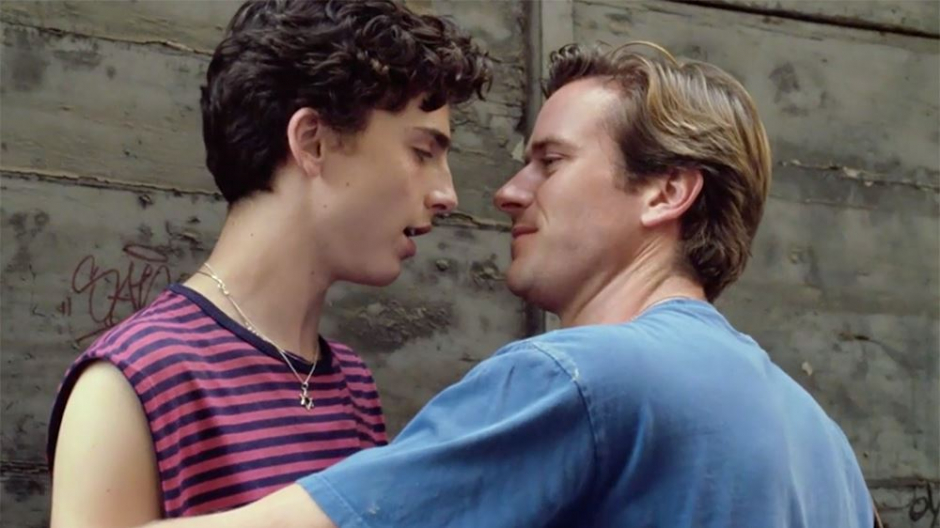I’ve often thought that if the Academy wanted to expand their award categories, a statuette for Best Scene would make for an intriguing accolade. Sometimes a film offers up a moment so exquisite and affecting it can feel as if it is embedding itself deep inside within you, never to be shaken. My case-in-point last year was the food bank scene from I, Daniel Blake, and this year my fantasy Best Scene award would go to the speech delivered by Michael Stuhlbarg at the end of Luca Guadagnino’s Call Me by Your Name. For me, while it isn’t the showiest or melodramatic, it is the single most arresting cinematic moment of all the Oscar contenders and should, at the very least, have earned Stuhlbarg a Best Supporting Actor nod. It gently underscores a hazy, sun-soaked two hours of simmering erotic tension and nervous love trysts in the coming-of-age story of Elio Perlman (Timothee Chalamet), a seventeen year old music student living with his parents in the sumptuous environs of rural northern Italy, among luscious apricot trees and azure lakes.
Stuhlbarg plays Elio’s father, a professor of ancient cultures who has an annual tradition of inviting a favoured research student to his house to spend the summer leisurely archiving documents and discussing etymology. For the summer of ’81, is the turn of Oliver (Arnie Hammer), an American Adonis who is effortlessly charming and roundly admired, with a cocksure attitude and an imposing presence. His arrival casts a stone into Elio’s waters and the ripples are soon being felt. For his part, Elio is a precocious talent and a romantic dreamer who loves much and does so passionately. His fingers charm the keys of the piano, his breezy swagger attracts the affections of his friend Marzia (Esther Garrel), but it is Oliver who he can’t shake from his mind. Upon arrival, the older man is given Elio’s bedroom – that fortress of sexual awakening for teenage boys – a displacement that echoes in Elio’s eventual confrontation of his sexual alignment. Soon the men are cycling and swimming together and seek out secret beauty spots, first in the Italian countryside, and then on each other. They swap between passion and reservation, the agonising pull and resist of lust and desire.
This is the early 80s, with the core efforts of the queer movement still fresh but not quite in full fruition, so the men are clandestine and careful, a task made harder by the creaking floorboards of the house and the comings and goings of its residents. But ,Call Me by Your Name, is not interested in the tension of the pair being caught. Rather, it watches the looks and touches exchanged between Elio and Oliver, it revels in the purity of their erotic attraction and, later, lingers on Elio’s burgeoning agonies. As Oliver’s residency winds inexorably towards its end, bursting the bubble that an everlasting summer can provide, Elio is forced to face his sexual identity and what it might mean for his future. Again, this is not done gratuitously – not placed in the presence of a homophobic villain character for example – rather, it is handled with nuance and purity. Elio succumbs to the inner torment that has haunted homosexuality, and Chalamet does a brilliant job of articulating this tension between fear and desire. It is an astonishing and addictive performance, well worthy of all its accolades.
In Call Me by Your Name, Guadagnino presents a pure look at homosexuality without recourse to an articulation of ugly bigotry or the spectre of disease (the impending AIDS epidemic is just around the corner, adding its gravitas, but the film is brave enough not to indulge). Instead, homosexuality is afforded the same treatment that heterosexuality has enjoyed for years – a film whose focus is on the erotic core of love and desire, rather than taboo and societal hardship. These latter are not entirely avoided, but they are not the point because to foreground them would be fawning and cliched. Perhaps, to be critical, it could be argued that by separating homosexuality from its societal torments is a fantasising too far and betrays the realities of those who have unduly suffered. But this is the eternal charge of art: express both beauty and ugliness and strike a balance. If there has been too much of the latter, then the former is needed and welcome, and this is where Call Me by Your Name pitches its tent. And it is all the more refreshing for doing so.
Going into this film, I was concerned I was going to feel cold towards it, as it appeared to be just another arty film about gorgeous privileged white rich people feeling a bit sad about love. In a sense, that is what it is, which, for me, holds it back from the same heights of Moonlight (2017). But the use of liberal rich white people does end up lending its own particular gravity to the situation; even in this relative comfort and secure network of support, being a teenager in love is damn hard, especially when wider society is being achingly slow about resolving its prejudices.
Perhaps, therefore, Moonlight and Call Me by Your Name can go unashamedly hand-in-hand as a duo of films that will evolve LGBTQ+ cinema to its next stage, dragging a languid Hollywood with them in an effort to eradicate its ongoing love affair with heteronormativity. Together the duo fold us into the bubbles of life where heterosexuality has had to enclose itself and they ask what, exactly, was the problem? Where, exactly, is the taboo?
by David Hartley

